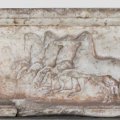The University of Queensland is leading a project designed to improve the reading skills of students in rural and mining communities, in collaboration with Education Queensland and BHP Billiton Mitsubishi Alliance (BMA).
Associate Professor Christa van Kraayenoord from UQ’s School of Education said the project aimed to build school capacity and enhance teacher knowledge and develop school community links in 14 schools rural and mining communities in Queensland’s Bowen Basin.
Associate Professor van Kraayenoord said the Australian Research Council-funded project had conducted a survey that explored assumptions about the relationship between community expectations and the nature of reading teaching in schools.
More than 450 people have responded to the survey.
Results of the survey relating to levels of community use of reading materials showed that there were many people doing a lot of reading, and few who were not reading anything.
Three-hundred-and-seventy-five respondents stated they were reading on a regular basis for enjoyment, leisure or entertainment for more than four hours per week.
“I think what the findings from this part of the study tell us is the importance of not making assumptions about the community in which a school is located,” Associate Professor van Kraayenoord said.
“People in the community are probably engaged in more types of reading activities for a wider variety of purposes than schools and teachers might think.
“Many respondents also reported that they read for work while fewer people said they read for social reasons or for religious reasons.”
Associate Professor van Kraayenoord said in responding to questions about the value of reading, 430 respondents agreed that learning to read could enable a person to overcome disadvantage.
“When asked in the survey about the teaching of reading in schools, the respondents strongly agreed that children learn to read in different ways and at different rates. This finding suggests that addressing students’ individual strengths and needs is important in the teaching of reading,” she said.
Four-hundred-and thirty-seven respondents agreed with the statement that there was a parental role in the teaching of reading and it was not just the school’s responsibility to teach children to read.
Based on this finding, Associate Professor van Kraayenoord said it seemed that respondents believe that parents and schools have complementary roles to play in the teaching of reading.
The research team presented the survey findings at The Australian Association for the Teaching of English and the Australian Literacy Educators' Association National Conference last month.
Associate Professor van Kraayenoord said during the rest of 2013 and 2014 the research team will deliver professional learning and provide ongoing support to the schools to assist them to identify ways they can develop reading skills and reach out to their communities about the importance of reading.
Media: Associate Professor Christa van Kraayenoord – (07) 3365 6521, c.vankraayenoord@uq.edu.au, or Kristen Bastian – (07) 3346 9279 or k.bastian@uq.edu.au
.jpg)



